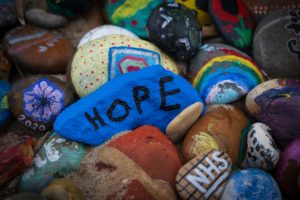Advice from Clinical Psychologist Dr Nihara Krause, for those who test negative, or feel well, but still have to complete a 10 day isolation:
- If you can, try to build a routine – having a routine is calming, and gives us purpose throughout the day. You could make a daily plan that includes eating, exercising, studying/working, and resting.
- If building a whole routine seems overwhelming, or you’re lacking motivation, try to pick one main task a day, and make sure you feel proud of yourself when you complete it. It could be something small you don’t usually have time for, such as tidying your room.
- Give yourself enough time to sleep, but try not to sleep through the day. If you have a garden, try to allocate some time outside to make a difference mentally between day and night.
- Don’t be hard on yourself for not being able to achieve as much as you usually would, or for abandoning a routine. Ease the pressure on yourself, and remember that in a hard and strange situation, the most important thing to focus on is getting through each day.
- Keep up self-care – Just because you can’t go out, doesn’t mean you can’t enjoy downtime taking a bath, painting your nails, or playing your favourite game. Maintain the activities that help you to manage your stress and rest.
- Try to connect with any friends or classmates who have also been told to isolate. Plan some virtual activities with them – they may be more inclined to do something on-line than those who aren’t isolating.
- Keep looking forward – try to see the current challenge of isolating as a ‘bump in the road’ of a slow progression towards an improved situation with the pandemic. We are not there as yet, but we all will be.
- Remember, staying indoors even though you still feel well means you are helping those who might be more vulnerable to COVID-19. You are being a good person by completing your isolation, so you have something to feel proud of every day.


